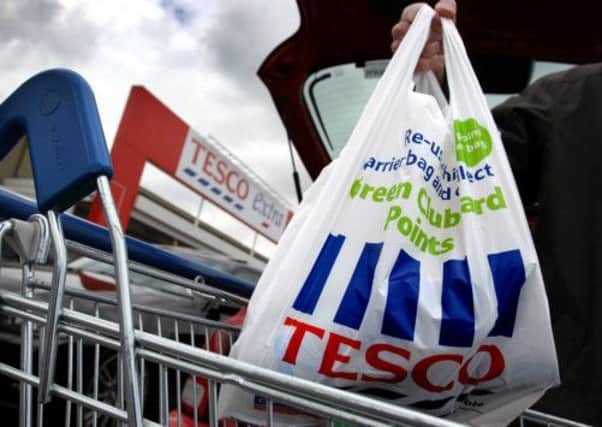Jayne Dowle: Why we’re not being served by the big stores


That’s “only” almost £2bn. Like its Big Four partners, Asda, Sainsbury’s and Morrisons, Tesco is not on its uppers yet. Between them, they made billions of pounds last year. However, this climate indicates big challenges ahead for those who have invested in those megalithic temples to Mammon. Shoppers, it seems, are no longer dazzled by thousands upon thousands of square feet packed with BOGOFs and toasters.
It is hardly surprising, given these recessionary times, that what was once considered retail nirvana is now often regarded by the shopper as a particularly testing circle of hell. Too big, too confusing, too unfriendly and way too cynical on the marketing front, these massive out-of-town sheds are beginning to look as old-fashioned and unwieldy as, well, a department store.
Advertisement
Hide AdAdvertisement
Hide AdYes, a department store. If the latest trading figures from Debenhams are anything to go by, shoppers increasingly can’t be bothered with browsing.
We’re too savvy now to be taken in by endless “end of season sales” and sales ladies spraying us with “exclusive” perfumes. Indeed, I’d wager that the only customers still impressed by these hallowed halls are foreign tourists overawed by a carrier bag bearing a famous crest.
Debenhams’ profits fell to £120.3m in the six months to March, down more than five per cent. The company blames the snow for keeping shoppers at home, but bad weather can only account for so much. Buried behind the gloomy headline figures is the evidence that online sales outstripped any other year.
It is telling that the retailer is planning to launch a next day delivery service in time for Christmas, to compete with the likes of Next, which can deliver party dresses faster than Father Christmas himself.
Advertisement
Hide AdAdvertisement
Hide AdLet’s not panic just yet though. It’s not as if either Tesco or Debenhams are suddenly going to disappear and join the ranks of those dusty distant retail names from the past, like Liptons and C&A. Neither are they, like Dixons or HMV, limited by what they sell. In fact, part of the problem is the choice of what they do sell.
Walk into a mega-supermarket or a department store, and at first the array of goods may seem overwhelming. Look closer though and you might find it hard to locate the actual item you had set your heart on, or find yourself standing in the middle of the shop calculating whether it would be cheaper to buy it elsewhere. And inevitably, you leave empty-handed and end up back home on the laptop.
What I’d say to those chief execs scratching their heads is that there is no point trying to compete with the internet. What they must do is to embrace it, and to get their stores on top of the competition, they have to concentrate on one thing; service. We customers can stay up all night clicking away, but nothing beats a good assistant who understands that their job is to help you.
In this, established names like Tesco and Debenhams have a long way to go to emulate quirky shops like Hollister and Lush, both brands popular with that most demanding of customer, the young person. Go into any branch, and the staff will, in my experience at least, fall over themselves to serve, make you feel like a valued customer, even if you are only buying a bar of soap, never pressurise you into buying something you don’t want, and order, without tutting, anything you do want.
Advertisement
Hide AdAdvertisement
Hide AdI’ll give you an example of a recent visit to a department store to provide a stark contrast. I was with my friend, who had seen a lamp online for her little girl’s room. We looked around to no avail, so we asked an assistant. “We don’t sell lamps and we haven’t sold them for years,” muttered this cheerful soul, whose face could have stopped a clock, never mind switched on a lamp. “You’ll have to go online for that.” And with those damning words, she turned on her heel and left us in the middle of the aisle. Perhaps she was having a bad day, but that kind of attitude does nothing to coax us into these emporia to part with our cash for anything at all. My friend went home and ordered the lamp, and we haven’t been back since.
What retailers have got to do is to reverse this trend, and lure us in, not always for what they offer directly on the shop floor, but for what added value their staff can bring to our shopping experience. I wish them luck with getting this right, but I say forget the makeovers and the advertising campaigns – this will be one investment definitely worth making.